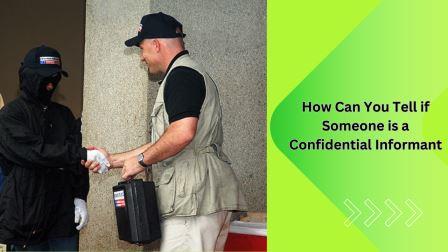Identifying whether someone is a confidential informant (CI) can be a sensitive process due to the legal and ethical considerations involved. Let’s explore what a confidential informant is, signs that may indicate someone is working in this capacity, the rules they must follow, and how one can become a confidential informant if that is the route they intend to pursue.
What Is a Confidential Informant?
A confidential informant (CI), also known as an informer or source, provides information about criminal activity to law enforcement under an agreement of confidentiality. CIs typically have firsthand knowledge of ongoing or past criminal activities and may assist law enforcement in gathering additional evidence. This assistance can include recording conversations, making controlled drug buys, or gaining access to targeted groups or individuals1.
Signs of a Confidential Informant
Identifying a confidential informant can be challenging, as many CIs operate without revealing their role. However, several signs might indicate that someone is working with law enforcement:
- Sudden Lifestyle Changes:
- If an individual suddenly affords expensive items or security measures seemingly beyond their means, it could raise suspicion.
- Access to Law Enforcement:
- Someone discussing sensitive law enforcement techniques or having a close relationship with police may be an indicator.
- Inconsistent or Inexplicable Actions:
- An abrupt withdrawal from criminal activities or acting suspicious during ongoing investigations could signal cooperation with law enforcement.
- Regular Contact with Law Enforcement:
- Frequent meetings with the police or conveying sensitive information may suggest involvement as a CI.
- Involvement in Multiple Investigations:
- Providing information on various crimes indicates a pattern of cooperation.
- Lack of Criminal Record:
- Having no prior convictions or arrests despite involvement in illegal activities can be suspicious.
- Frequently Receiving Leniency or Reduced Charges:
- Despite engaging in illegal activities, if the individual consistently receives light punishment or reduced charges, it may imply a deal with law enforcement.
- Unusual Behavior During Arrests:
- Reacting calmly or showing little concern during arrests and subsequent legal proceedings could be telling.
- Suspicious Activity:
- Being seen in areas where illegal activities occur or having unexplained wealth may raise questions.
- Inconsistencies in Stories:
Rules for Confidential Informants
- CIs must follow the terms of their agreement with law enforcement.
- They should maintain confidentiality and avoid revealing their role to others.
- Violating the agreement can have serious consequences, including legal penalties or endangering their safety.
How Can Someone Become a Confidential Informant?
To become a confidential informant:
- Consult Legal Advice:
- Seek legal advice and understand the implications.
- Contact Law Enforcement:
- Approach law enforcement agencies and express your willingness to cooperate.
- Provide Relevant Information:
- Share any firsthand knowledge of criminal activities.
- Negotiate Terms:
- Work out an agreement with law enforcement regarding your role, safety, and compensation (if any).
Remember that being a confidential informant involves risks, and it’s essential to weigh the pros and cons carefully. Always consult legal professionals before making any decisions1.
If you suspect someone is a confidential informant, consider the context and signs mentioned above. However, always exercise caution and respect privacy while doing so.
